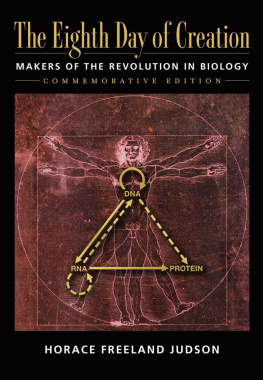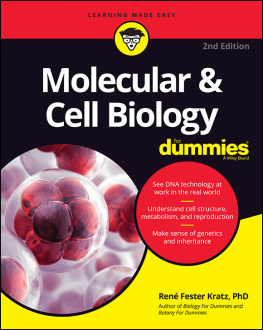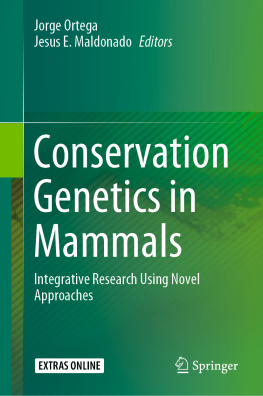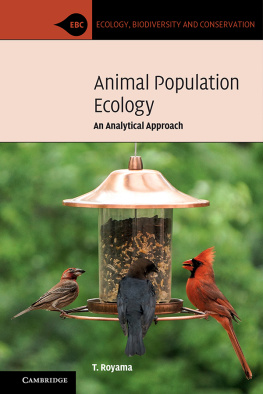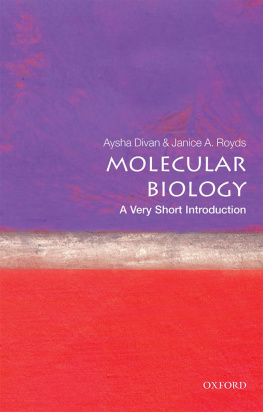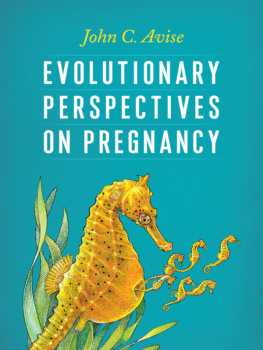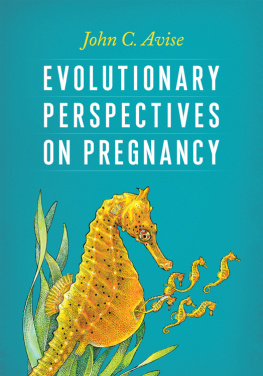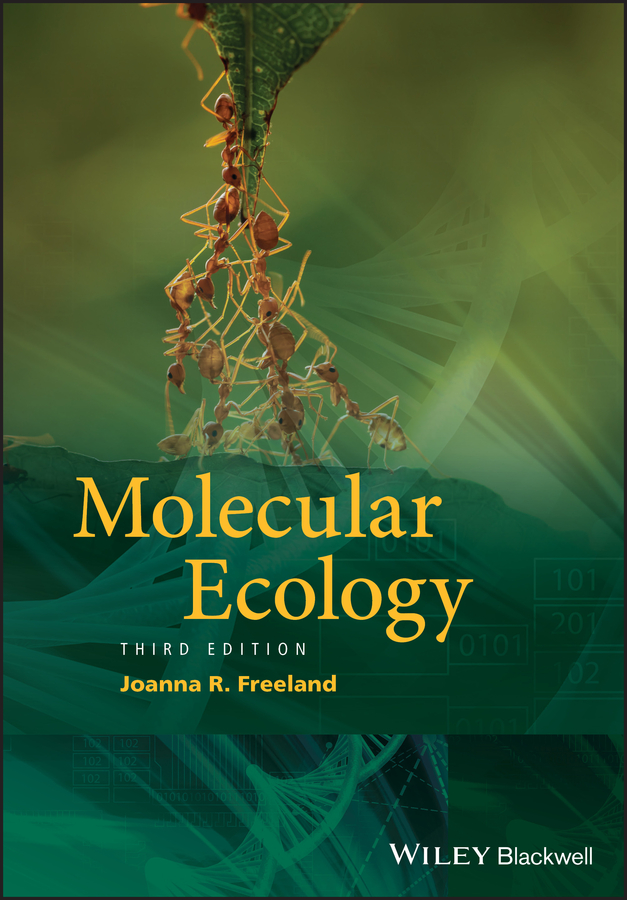
Table of Contents
List of Tables
- Chapter 1
- Chapter 2
- Chapter 3
- Chapter 4
- Chapter 5
- Chapter 6
- Chapter 7
- Chapter 8
List of Illustrations
- Chapter 1
- Chapter 2
- Chapter 3
- Chapter 4
- Chapter 5
- Chapter 6
- Chapter 7
- Chapter 8
Guide
Pages
Molecular Ecology
Joanna R. Freeland
Professor, Trent University, Canada
Third Edition

This third edition first published 2020
2020 John Wiley & Sons Ltd
Edition History
John Wiley and Sons (2e, 2011)
All rights reserved. No part of this publication may be reproduced, stored in a retrieval system, or transmitted, in any form or by any means, electronic, mechanical, photocopying, recording or otherwise, except as permitted by law. Advice on how to obtain permission to reuse material from this title is available at http://www.wiley.com/go/permissions.
The right of Joanna R. Freeland to be identified as the author of this work has been asserted in accordance with law.
Registered Office(s)
John Wiley & Sons, Inc., 111 River Street, Hoboken, NJ 07030, USA
John Wiley & Sons Ltd, The Atrium, Southern Gate, Chichester, West Sussex, PO19 8SQ, UK
Editorial Office
9600 Garsington Road, Oxford, OX4 2DQ, UK
For details of our global editorial offices, customer services, and more information about Wiley products visit us at www.wiley.com.
Wiley also publishes its books in a variety of electronic formats and by printondemand. Some content that appears in standard print versions of this book may not be available in other formats.
Limit of Liability/Disclaimer of Warranty
While the publisher and authors have used their best efforts in preparing this work, they make no representations or warranties with respect to the accuracy or completeness of the contents of this work and specifically disclaim all warranties, including without limitation any implied warranties of merchantability or fitness for a particular purpose. No warranty may be created or extended by sales representatives, written sales materials or promotional statements for this work. The fact that an organization, website, or product is referred to in this work as a citation and/or potential source of further information does not mean that the publisher and authors endorse the information or services the organization, website, or product may provide or recommendations it may make. This work is sold with the understanding that the publisher is not engaged in rendering professional services. The advice and strategies contained herein may not be suitable for your situation. You should consult with a specialist where appropriate. Further, readers should be aware that websites listed in this work may have changed or disappeared between when this work was written and when it is read. Neither the publisher nor authors shall be liable for any loss of profit or any other commercial damages, including but not limited to special, incidental, consequential, or other damages.
Library of Congress CataloginginPublication Data
Name: Freeland, Joanna, author.
Title: Molecular ecology / Joanna R. Freeland, professor, Trent University, Canada.
Description: Third edition. | Hoboken, NJ : Wiley, [2019] | Revised edition of: Molecular ecology by Joanna R. Freeland and Heather Kirk ; Stephen Petersen. 2nd ed. 2011. | Includes bibliographical references and index.
Identifiers: LCCN 2019026621 (print) | LCCN 2019026622 (ebook) | ISBN 9781119426158 (paperback) | ISBN 9781119426165 (adobe pdf) | ISBN 9781119426172 (epub)
Subjects: LCSH: Molecular ecology.
Classification: LCC QH541.15.M63 F74 2019 (print) | LCC QH541.15.M63 (ebook) | DDC 577/.14dc23
LC record available at https://lccn.loc.gov/2019026621
LC ebook record available at https://lccn.loc.gov/2019026622
Cover Design: Wiley
Cover Images: frank60/Shutterstock, Creations/Shutterstock
To Kelvin Conrad, an exemplary biologist.
About the Companion Website Page
Dont forget to visit the companion website for this book:
www.wiley.com/go/freeland/molecularecology
There you will find valuable material designed to enhance your learning, including:
- Downloadable figures
- Further reading
- Weblinks to software programs
Scan this QR code to visit the companion website.

Molecular Genetics in Ecology
What is Molecular Ecology?
Over the past few decades, molecular biology has revolutionized ecological research. During that time, methods for genetically characterizing individuals, populations, and species have developed at a truly impressive rate, and continue to provide us with a wealth of novel data and fascinating new insights into the ecology and evolution of plants, animals, fungi, algae, and bacteria. Molecular markers allow us, among other things, to quantify genetic diversity, track the movements of individuals, measure inbreeding, identify the remains of individuals, characterize new species, and retrace historical patterns of dispersal. More recently, increasingly sophisticated genomic techniques have provided remarkable insight into the functioning of different genes, and the ways in which evolutionary adaptations (or lack thereof) can influence the survival of organisms in changing environments. All of these applications are of great academic interest, and are also frequently used to address practical ecological questions such as which endangered populations are most at risk from inbreeding, or how much hybridization has occurred between genetically modified crops and their wild relatives. Every year it becomes easier and more costeffective to acquire molecular genetic data, and laboratories around the world can now regularly accomplish previously unthinkable tasks such as describing entire communities based on nothing more than remnant DNA extracted from water samples, or comparing a suite of functional genes between individuals from different populations.
This third edition of Molecular Ecology has been substantially overhauled because of the tremendous leaps and bounds that have occurred in this field over the past few years. Arguably the most important development of the past decade has been the introduction and increasing costeffectiveness of high throughput sequencing; this technology was initially limited to a few labs with hefty research budgets, but is now accessible to a large community of researchers who are able to obtain sequence data sets about which they could previously only dream (). When this book was first published in 2005, a major reason for the excitement surrounding molecular ecology was the ease with which researchers could obtain genetic data from natural populations. While this is still true, the main difference between then and now is that studies conducted prior to 2005 were based on a handful of loci (gene regions), whereas molecular ecology studies are now often based on much larger numbers of loci, or in some cases entire genomes. As a result, we now have greater insight into virtually all of the topics covered in this book, including population genetics, evolutionary change, conservation genetics, and behavioral ecology. This first chapter introduces high throughput sequencing ( HTS ) as a topic that will be revisited in subsequent chapters. Other technologies that are becoming increasingly widespread in ecological studies, and which will be discussed in later chapters, include environmental DNA ( eDNA ) assays, metabarcoding, transcriptomics, and epigenetics. We will begin in this chapter by reviewing some principles of genetics and some widely used techniques that are essential to our understanding of molecular ecology.
Next page

